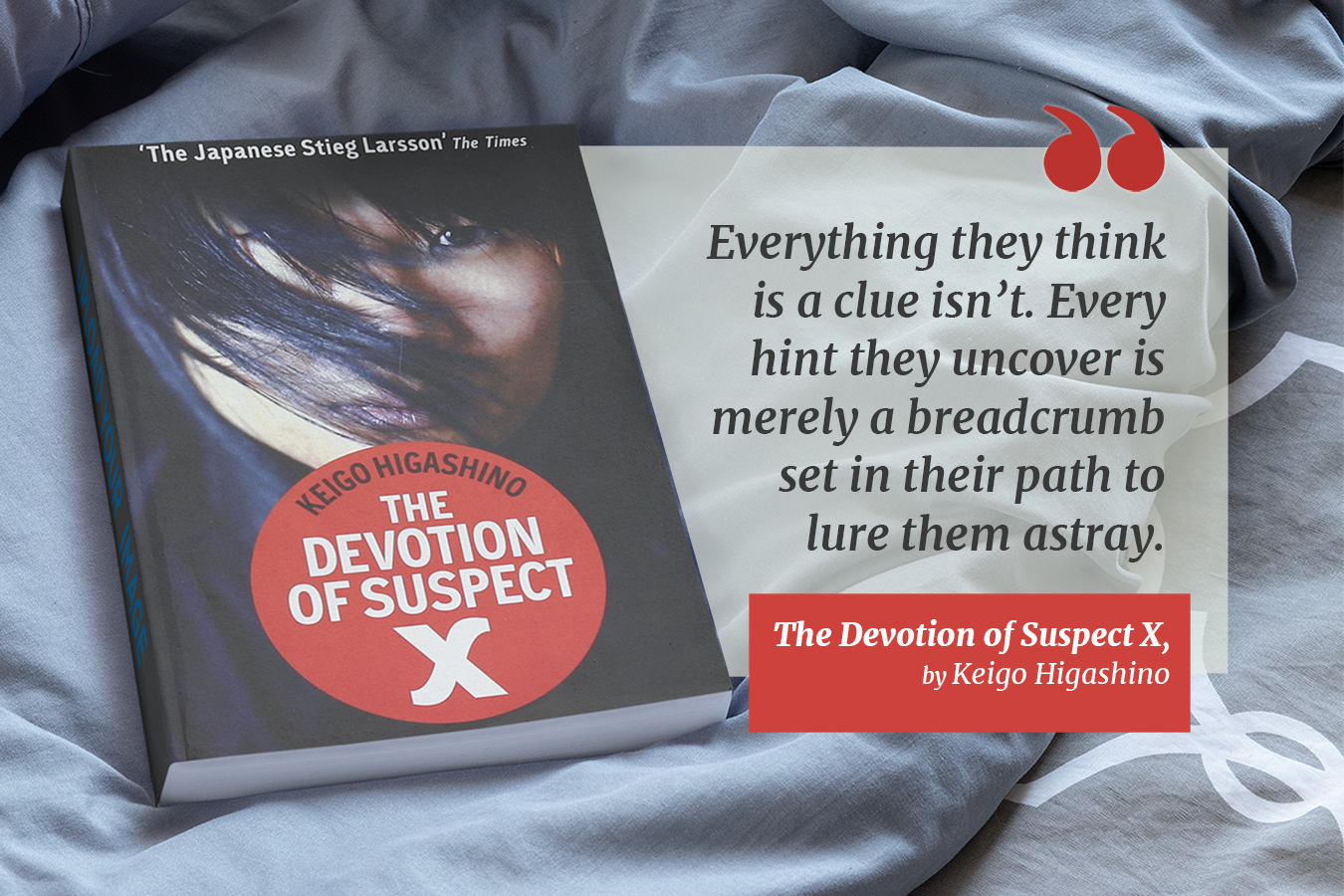
Lessons from Books: The Devotion of Suspect X Reveals Aspects of Japan
I’ve been particularly fascinated by Japanese crime fiction. Partly, this has to do with the setting. After all, Japan always seems to embody certain particularities – the crafted precision of its Haiku poems and ikebana arrangements, the grittiness of its neon-drenched cities, the slick ruthlessness of its gangsters or Yakuza. Then its seeming insularity from the world that’s contradicted by its embrace of American brands. As Douglas McGray puts it in his brilliant feature on “Japan’s Gross National Cool,” Japanese culture – its anime characters, manga comics, fashion labels, pop-stars, Zen outlook and management methods – infiltrates other markets with a seduction of its own making.
The Devotion of Suspect X does not disappoint as either a riveting page-turner or as a short dive into urban Japan. Unlike conventional mysteries, the murderer’s identity is revealed early on. Yasuko is a divorcee and a single mother, who is trying to elude her abusive ex-husband, while raising her daughter Misato. To make ends meet, she works at a bento shop, where her neighbor Ishigami, a genius mathematics professor, often drops in to buy lunch. One terrifying night, in a scene reminiscent of the chilling 1991 movie, Sleeping with the Enemy, her extortionist ex-husband returns. In a bid to save her daughter, Yasuko strangles him with a cord from the kotatsu, a distinctly Japanese table, covered with a blanket or quilt, heated by an electrical source.
The genius Ishigami, who has always been infatuated or even obsessed with Yasuko, seems almost exhilarated by the heroic role that circumstances accord him. He helps construct a flawless alibi to save Yasuko and her daughter from police enquiries. The main police detective is assisted by a physicist, Yukawa, whose ingenuity matches Ishagami’s. Incidentally the two were also batchmates at college. Like in any chess game, Ishagami and Yukawa pit their smarts against each other with Yasuko’s rescue (or indictment) hanging in the balance.
Beyond the story itself, crime novels often reflect the social makeup of a particular place and period. The woman, Yasuko, who was earlier a victim of her gambling husband, is now “tossed” between the maneuvers of Ishigami and Yukawa. Then there is the manner in which the homeless, who reside by the riverbanks, are used by the clinical but also fiercely devoted mathematician to mask the truth. In the cold logic and blackboard deductions of the mathematician and physicist, a woman’s agency or a homeless person’s voice are lightly skipped over or ruthlessly crossed out. After all, neat equations can hardly sum up life’s messiness or the shadows that dwell in a city’s underbelly.
Still, Higashino wields his words with an engineer’s conciseness, and plots a gripping puzzle with adequate zigzags and twirls. Unsurprisingly, this widely-sold book has inspired films in many languages including the Malayalam and Hindi versions of Drishyam. It’s a book to pick up when you want to stop attending to your own torments, and worry about the fate of fictional characters in an island country.
References:
Higashino, Keigo, The Devotion of Suspect X, Minotaur Books, United States, 2011
Japan’s Gross National Cool



